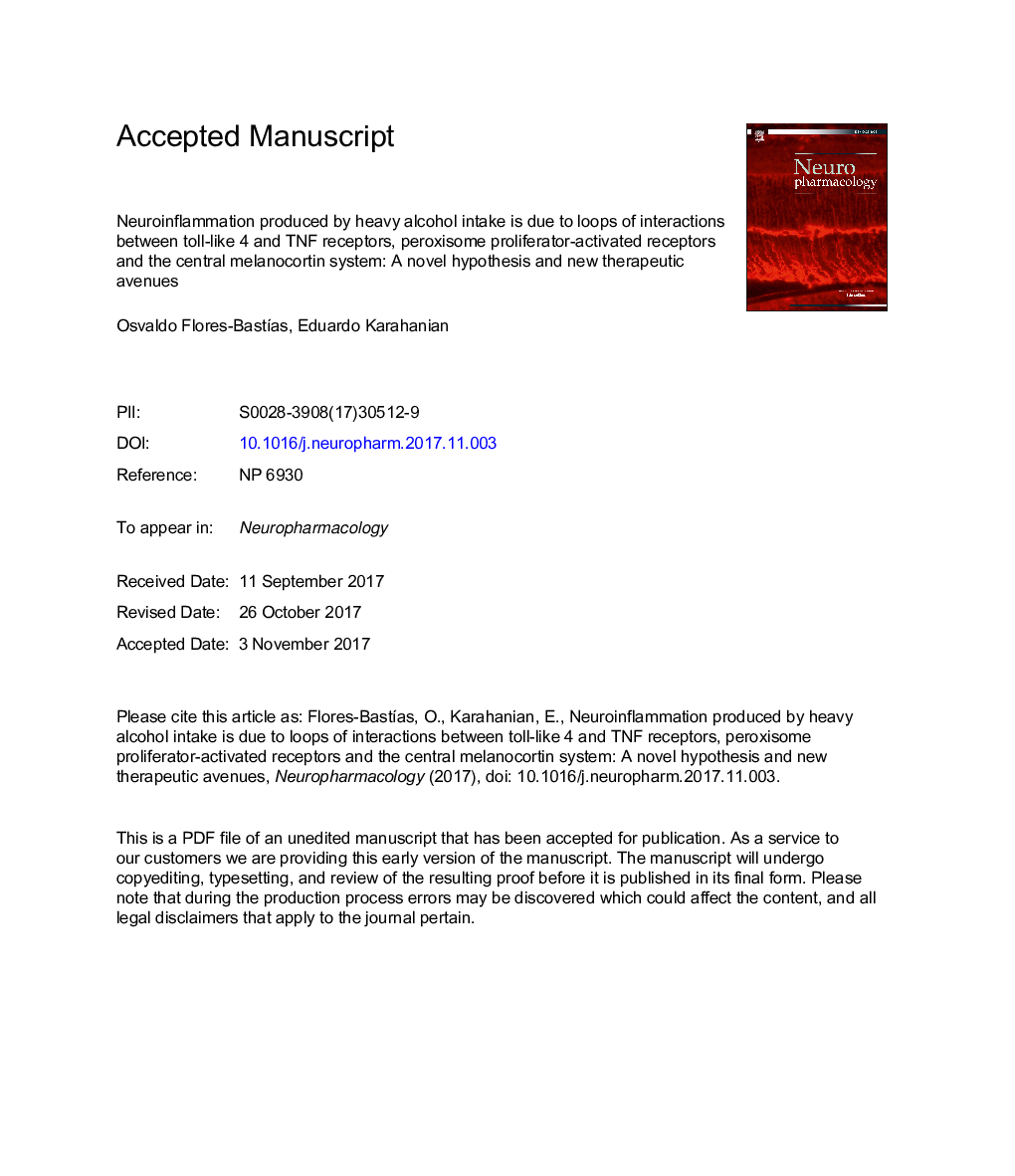| Article ID | Journal | Published Year | Pages | File Type |
|---|---|---|---|---|
| 8517424 | Neuropharmacology | 2018 | 32 Pages |
Abstract
Excessive alcohol intake induces an inflammatory response in the brain, via TNFα, TLR4 and NF-κB signaling pathways. It has been proposed that neuroinflammation would play a very important role in the development of alcohol addiction. In addition to stimulating the synthesis of inflammatory mediators such as IL-6, IL-1β and TNFα, NF-κB is capable of reducing the anti-inflammatory activity of PPARα and PPARγ. Reciprocally, PPARα, PPARγ and melanocortin 4 receptor (MC4R) can decrease the proinflammatory activity of NF-κB, establishing an interplay of inactivations between such nuclear factors and receptors. In this review, we hypothesize that one of the mechanisms by which alcohol produces neuroinflammation is through NF-κB-mediated decrease in PPARα and PPARγ anti-inflammatory activities; in addition, ethanol negatively affects MC4R activity, decreasing the ability of this receptor to activate PPARγ. PPARα, PPARγ and MC4R can be pharmacologically activated by synthetic ligands (fibrates, thiazolidinediones and synthetic peptides, respectively); in this context, we propose that the administration of such ligands would decrease neuroinflammation produced by alcohol intake. The advantage of this approach is that fibrates and thiazolidinediones are FDA-approved drugs that have been used for years in other clinical conditions, and now may offer a new perspective for the treatment of alcoholism.
Related Topics
Life Sciences
Neuroscience
Behavioral Neuroscience
Authors
Osvaldo Flores-BastÃas, Eduardo Karahanian,
